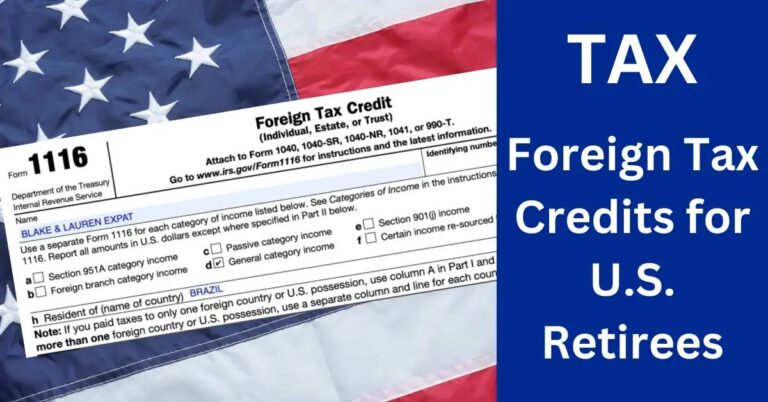TL;DR:
- Selling overseas property may incur taxes both in the property’s country and at home.
- IRS requires reporting of foreign property sales.
- Tax residency affects reporting requirements; expatriates face unique rules.
- Capital gains tax involves the profit from the sale; tax rates vary by country.
- U.S. taxes apply to global income, including profits from inherited foreign properties.
- Double taxation can occur but may be mitigated by tax treaties or foreign tax credits.
- Consult local tax experts to understand exemptions, treaties, and specific tax rates.
- Currency exchange rates can impact the actual taxable gain.
- Residency status influences tax obligations; treaties may reduce liabilities.
- Professional advice is crucial for compliance and minimizing tax obligations.
Selling property abroad can bring surprising tax challenges. Do you need to report sales to the IRS? What about capital gains taxes? Selling a home in another country involves these questions and more. This guide breaks down everything from international tax liabilities to avoiding double taxation. Whether you’re an expat or a global nomad, understanding these issues is key. Let’s demystify these tax implications and help you make informed decisions.
Tax Liabilities and Reporting for Selling Property Abroad
Do you have to pay taxes if you sell a property overseas? Yes, selling overseas property may mean paying taxes. Each country has its own rules. Sometimes, you pay tax in the country where the property is. Also, your home country might want some of those taxes too.
Now, let us talk about the IRS. Do I have to declare foreign property to the IRS? Yes, you do. If you sell property abroad, you must report this to the IRS. Reporting means filling out the right forms and listing the sale when you file your taxes.
Your tax residency matters when reporting a foreign property sale. It affects what forms you complete. Expatriates often face different rules than regular residents. Being aware of your tax residency will guide you in reporting right.
When it comes to selling property abroad, knowing about tax filing is important. For expatriates, the process gets tricky. You have to consider tax liability for overseas property. This includes understanding how much money you might need to pay and to whom. Sales require information on foreign income and capital gains. Yet, the steps are clear if you know where to look.
Always make sure to ask questions and seek professional advice. Selling property abroad can be confusing, especially if you split time between countries. Talking to experts will help. Remember, owing taxes does not always mean paying twice. Each sale depends on personal and country-specific facts. Make sure you know how to report and file these accurately to avoid trouble and plan well.
Understanding Capital Gains Tax on International Real Estate
Selling a home in another country? You need to know about capital gains tax. It is a tax on the profit you make from the sale. But how do you work out this tax? Start with these steps:
First, figure out the property’s sale price. Next, subtract the original price you paid. The difference is your capital gain. Countries have different tax rates. For some, it could be 15%. For others, it might be higher or lower. You should check the rate for each country.
So, how much is capital gains tax on foreign property? It varies. As an expert, you can expect no exact answer without the country details.
Sometimes, you may not owe any tax on gains. Countries often have exemptions. For example, some may not tax gains up to a certain amount. Some offer deductions for main homes or long-term ownership.
Do you have to pay U.S. taxes if you sell a foreign property you’ve inherited? Yes, U.S. citizens pay U.S. taxes on global income. You need to report and maybe pay capital gains tax when selling an inherited property. Yet, you might adjust for its value when inherited, lowering your tax.
Always check your home country’s tax website. Talk to a local tax pro for the best advice. They know the rules well. Learn if tax treaties can help you save. They could help you avoid taxes in both countries.
Most importantly, stay informed about each country’s rules. This way, you do everything by the book and avoid problems.
Navigating Double Taxation and Using Tax Treaties
When selling property abroad, you may face double taxation. This means both the country where the property is located and your home country could tax the proceeds. Understanding this concept can help you avoid paying twice.
How do you avoid capital gains tax on foreign property? You can use tax treaties. These treaties help countries work together to prevent double taxation. They usually set rules about which country gets to tax different types of income. Check if your country has a treaty with the country where you sell your property. This can greatly influence your tax obligations.
If no tax treaty exists, you might still avoid double taxation using foreign tax credits. These credits let you subtract the tax paid overseas from what you owe in your home country. You’ll need to prove you’ve paid taxes on the foreign property sale. Keep all records and receipts because the tax authorities will want proof.
Do you have to pay taxes if selling property overseas? Yes, likely so. Still, treaties can lower your burden. They might reduce the tax rate or offer other benefits for real estate deals. Always evaluate the specific terms of the treaty related to property sales. Their benefits differ and should align with your specific needs.
It’s important to seek expert advice. Tax laws and treaties can be complex and vary widely. Consulting a tax expert can provide clarity. They can guide you on how to best apply treaties and credits. The goal is to ensure you minimize what you owe while staying compliant with all tax laws.
Impacts of Residency and Currency on Tax Obligations
Tax residency can deeply affect property taxes abroad. If you change your tax residency, it might change what you owe. Some countries have double tax agreements. These agreements can help avoid being taxed twice. If you sell a foreign home, you might need to report it to the IRS. They want to know about foreign property sales.
Currency exchange rates can create tax surprises. When you sell property, the local currency might be different from your home currency. If exchange rates shift, your profit might look different. This can change your tax bill significantly.
Residency has many impacts on property and taxes. Being a resident or non-resident can change your tax duties. Each country has different rules, so learning them is important. As a non-resident, you might not get some tax breaks.
Selling an inherited foreign property has tax implications, too. Your residency may change the taxes you owe on this sale. If you live in another country, check if any tax treaties apply. These treaties can reduce your tax burden.
For more detailed guidance, you might want to explore resources like tax advisors with expertise in international property sales. They’ll help navigate complex rules and ensure you comply with all legal requirements.
Conclusion
Selling property abroad involves complex tax reporting and liabilities. You must report these sales to the IRS, factoring in your tax residency status and specific country rules. Capital gains tax varies and exemptions can reduce your tax load. Double taxation is common, but tax treaties and foreign tax credits can help reduce it. Your residency and currency changes further affect your tax duties. Understanding these factors helps protect your financial interests. By staying informed, you can confidently manage your property sale and minimize surprises.












